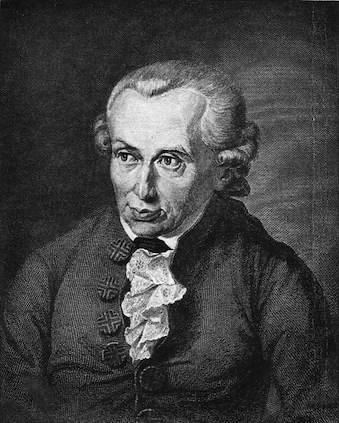SECTION II: What is the Self?
Reading 6: from Kant's Critique of Pure Reason and Prolegomena to any Future Metaphysic
Immanuel Kant was a German philosophy who lived toward th end of the Age of Reason (1724-1804). He was a physicist and philosopher whose works in philosophy have shaped the two centuries since his death. His influence extends through metaphysics, epistemology, ethics, and aesthetics. Kant seeks to restore some of the ideas that Hume finds absent from our mental landscape. Kant draws upon rationalist as well as empiricist principles, arguing that the human mind owes significant debts both to sense information and its own "hard-wiring". |
|
"It is, therefore, a question which requires close investigation, and is not to be answered at first sight — whether there exists a cognition altogether independent of experience, and even of all sensuous impressions. Cognition of this kind is called a priori, in contradistinction to empirical cognition, which has its sources a posteriori, that is, in experience." |
Engraving of Kant, J.L. Raab, after a painting by Dobler, 1791
|
|
|
Go back to Hume |
|

